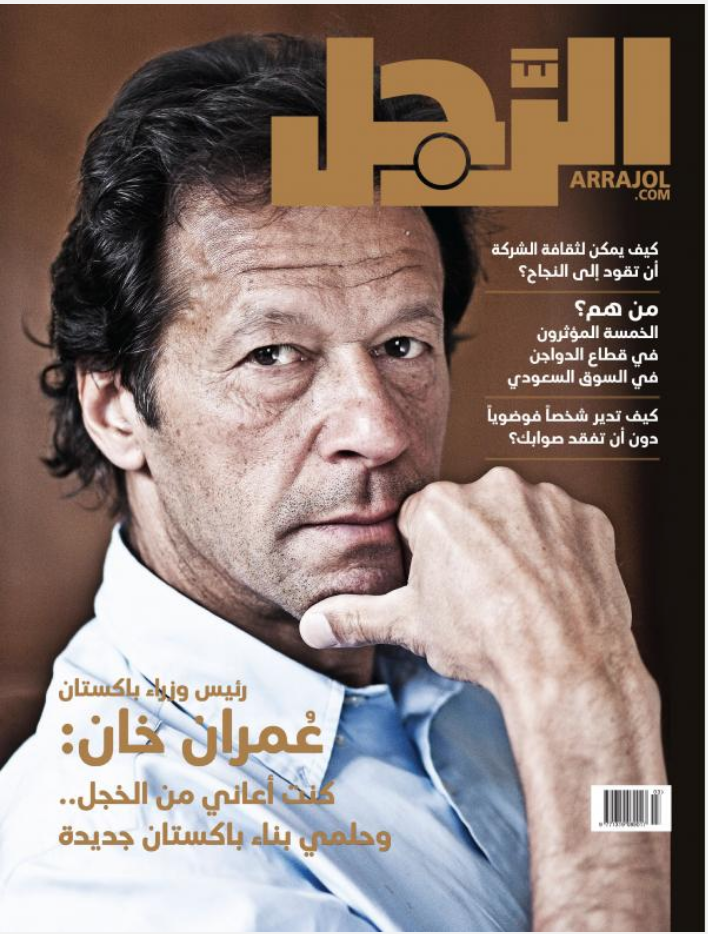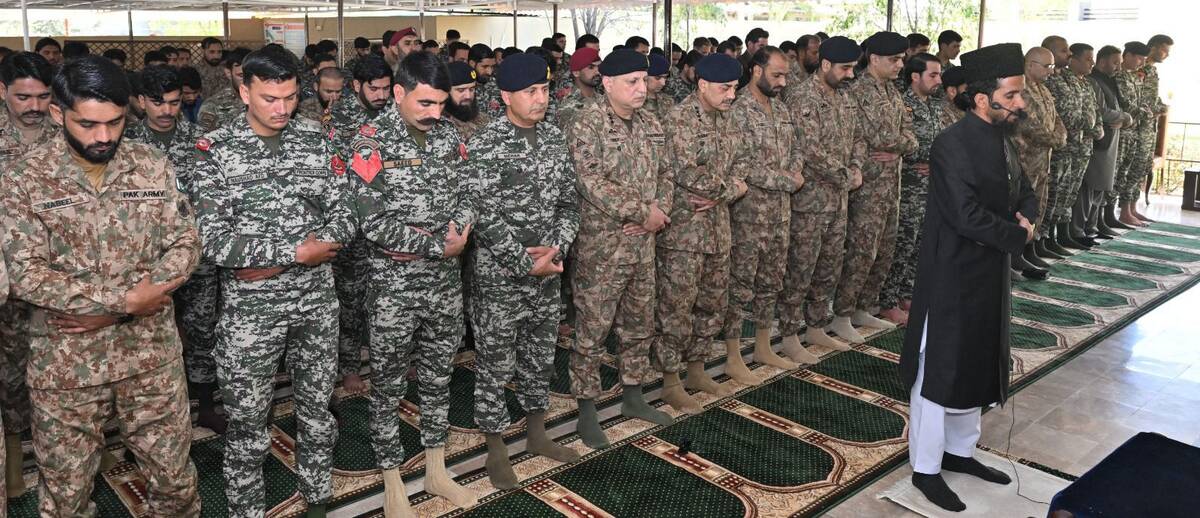ISLAMABAD: Pakistani Prime Minister Imran Khan is on the cover of the latest edition of Arabic men’s lifestyle magazine Arrajol whose cover story focuses on the future of ties between Pakistan and Saudi Arabia, the publication’s editor in chief said.
The 66-year-old cricket icon-turned-politician swept to power in general elections in July last year and has since pivoted his foreign policy toward bolstering ties with Muslim countries, particularly Saudi Arabia. Khan’s first foreign visit was to the Kingdom.
Mohammed Fahd Alharthi, the editor in chief of Arrajol, a leading monthly men’s lifestyle magazine owned by Saudi Research and Publishing Company, said Khan was the first Pakistani figure to make the cover of the Arabic-language magazine.
Next to a chiseled picture of Khan on the cover are the words: “Building a new Pakistan is my dream.”
“The magazine focused on the vision of Prime Minister Imran Khan with regards the future of the relationship with the [Saudi] Kingdom, especially after the visit of Crown Prince Mohammed bin Salman to Pakistan,” Alharthi told Arab News, adding that the cover story explored Khan’s plan on how the two countries could develop and make the most of their relationship.

In February, the crown prince visited Islamabad on a two-day visit that ratified growing closeness between the historic allies with investment agreements worth $21 billion and an announcement that over 2,100 Pakistani prisoners in Saudi jails would be immediately released.
“Relations between Pakistan and Saudi Arabia have gained new momentum with the arrival of the government of Prime Minister Imran Khan, who stresses on every occasion that his country will never allow any aggression against the Kingdom,” Alharthi said. “He sees Saudi Arabia as a pivotal state in the Muslim world, with political, oil and financial capabilities.”
On the other hand, the in chief editor said, the Saudis also viewed Pakistan as a strategic partner with a wealth of expertise, military capabilities and human resources. “There are more than 2 million Pakistanis living in the Kingdom and the Kingdom is the first supplier of Pakistani oil,” Alharthi said.
He said the latest edition of the Arrajol magazine focused on Khan’s childhood to his rise as a cricket legend and prime minister of Pakistan.
Khan’s success in the 2018 election came more than 20 years after he founded his own political party, and ended decades of political dominance by two dynastic powerhouses, the Pakistan Muslim League-Nawaz of three-time premier Nawaz Sharif, and the Pakistan Peoples Party, founded and led by the Bhutto family.
“His Pakistan Tehreek-e-Insaf party has won a sweeping victory over the traditional political movements in his country,” Alharthi said about Khan’s rise to the prime minister’s office. “He is the first Pakistani figure on the cover of Arrajol.”




















